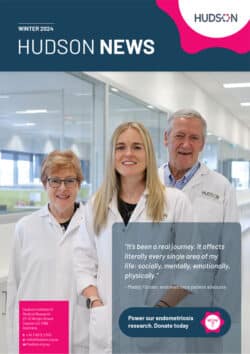Bronchopulmonary Dysplasia (BPD) is the most common chronic lung disease affecting low weight premature babies. My research is focused on using cells from the human placenta to repair the damaged lungs of premature babies.

Areas of interest
Bronchopulmonary dysplasia (BPD)
Research group
Biography
Associate Professor Lim’s research is focused on translating discoveries around regenerative medicine and cell therapies to clinically useful outcomes. She holds a joint appointment with the Department of Obstetrics and Gynaecology, Monash University.
Associate Professor Lim’s Amnion Cell Biology Research group has uncovered key immunological events that are critical to the success of amnion cell mediated lung repair in the settings of adult and neonatal lung disease. Her team has shown that amnion cells trigger endogenous repair processes by activating the adult stem cell niches and recruiting distal progenitor sites to the area of injury to aid repair.
She is interested in the impact of ageing on endogenous stem cells and how they interact with the innate immune system during injury and wound healing. Her work has recently extended into the area of extracellular vesicle research where she is investigating the regenerative potential of stem cell derived exosomes.
Associate Professor Lim has been a Chief Investigator (CI) on seven federally funded National Health and Medical Research Council grants and attracted more than AU$4 million in competitive funding since 2010. She is a CI on two registered cell therapy clinical trials where her basic scientific research is being translated to the bedside.
She is an inventor on two patents in this area. Her work has been showcased at the BIO SPARK Showcase in 2016 and has been attracting significant investor interest.
MORE ABOUT ASSOCIATE PROFESSOR LIM’S RESEARCH
Contribution to human health top-ranked
World-first trial of placental cell treatment helping premature babies
Melbourne innovation set to revolutionise cell therapy industry
Publication highlights



